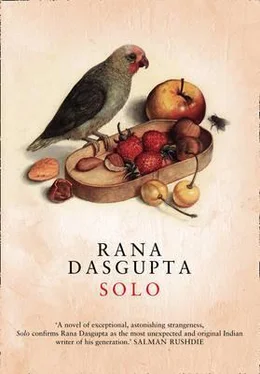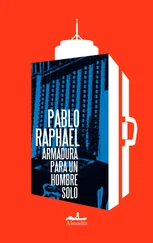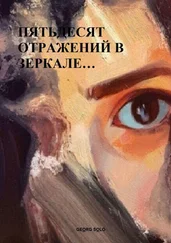‘Italian,’ he says. ‘Not such an old instrument, but extremely fine.’
‘And by far the most expensive,’ says Plastic. He looks at Boris. ‘You’ll have to pay me back when your album comes out.’
Mr Stern says,
‘Take it home, live with it a few days. If you don’t like it you can come back and try again.’
He lays the violin in its case.
Boris is looking at the battered fiddle he came in with. He turns it over and strokes it mournfully. Plastic picks up the new violin, trying to hurry things up.
They go outside. Prophets in tall hats are relating visions on street corners and drawing obstructive crowds. Plastic is trying to get away fast, and he’s zigzagging angrily. It takes him a while to realise Boris has not kept up. Exasperated, he turns around. To his consternation he sees that Boris is crouching over his old violin, which is already in flames on the sidewalk.
‘What the hell are you doing?’ demands Plastic, running back. ‘You can’t light fires on the street!’
Boris does not look up. He is completely absorbed in the burning violin. He has a small bottle of petrol in his hand. The wood is already turning black.
Plastic says,
‘You’ll get yourself arrested!’
Plastic is preparing to stamp out the flames in anger when he sees that a young woman is standing by, taking video of the burning violin on her phone.
The young woman is Khatuna. She is fascinated by the sacrificial fire, and she feels a wave of relaxation pass through her as she watches. Through the flames, she notices a streak of green where a metal string is burning, and she thinks this is the most moving thing she has seen for a long time. Boris turns and looks at her. She says,
‘Why are you burning your violin?’
She says it in Russian, she doesn’t know why.
The flames die down.
Boris stands up and looks at Plastic. He holds out his hand for the new violin. Plastic hands over the case, warily. He is uncomfortable at what he has just seen. But he is distracted by Khatuna.
‘You like fire?’ he asks her.
Plastic knows something about names, and when she tells him hers he says Georgian? and thinks he sees her interest awaken. He takes an invitation from his pocket and gives it to her.
‘This man is a great musician. Come to his show. I’m his producer. Plastic Munari.’
Boris’s first performance in New York is only a week away.
‘Will you come?’ Plastic insists.
‘Maybe,’ she says. She looks him over. She likes his suit.
Plastic is running very late, and can stay no more. He says, See you next Saturday and walks away. Khatuna watches him get into his limousine and disappear.
Boris prods the charred violin with his foot, and it scrapes on the concrete. He smiles at Khatuna and she begins to walk with him. He leads her through anonymous streets of warehouses and old factories. He opens a faceless entrance and takes her into a hallway of garish tiles. They go up aged wooden stairs, the stairwell cavernous around them. She follows him, thinking to herself, This is not me who is doing this, this is not Khatuna .
The apartment is huge, and built in an old factory. It has Persian rugs on the floor and antique maps on the walls. In one corner is a huddle of chairs, and Khatuna sits down on the sofa. Boris brings two glasses and a bottle of vodka. He pours for each of them.
I have a meeting in an hour , thinks Khatuna. What am I doing here?
There are pipes from floor to ceiling and the bricks show through the paint. There are windows instead of walls, and the great expanse of concrete floor ripples in the light, for it is not exactly flat. There are paintings stacked against the walls, and objects on the shelves that are worn and mournful with age.
Boris does not speak at all. When the silence becomes too big, Khatuna says,
‘What star sign are you?’
Boris does not know about such things.
‘When is your birthday?’
He tells her. She says,
‘The same day as my brother!’ She is strangely exhilarated. She asks which year he was born, and says,
‘You’re one year older than him. To the day.’
She tells him all about Irakli.
‘He’s an artist too. He writes poetry. He sits all day in our apartment, writing.’
She doesn’t know why she feels so happy with him, for he remains silent throughout. She feels something significant will happen because of him.
He gets up and leaves the room, and she waits for him to come back. She hears him playing the violin somewhere else in the house. She sits and listens to the music.
She takes out her phone. She puts on the video camera and turns it in slow circles, sweeping the clocks and paintings of this large and doleful room and coming back to herself, expressionless on the sofa. She wants to capture herself at this moment, sitting in this place, with this music in the background.
The music finishes, and still Boris does not return. Khatuna waits for several minutes. Then she gets up and looks for him in every room of the apartment. She cannot find him and finally, incredulous, she lets herself out.
13
KHATUNA AND IRAKLI EMERGED from the elevator and crossed the lobby. The doorman wished them a good night as they pushed through the glass carousel.
Outside, it was dark and cold.
‘You’re not wearing enough clothes,’ observed Khatuna unhappily. ‘Where’s that jacket I bought you last week?’
She stood on the edge of the sidewalk, the lights of the ziggurat terraced above her. She held out her glove; a taxi swooped.
She let Irakli in ahead of her. He had an old umbrella, which he’d bought at a flea market and took with him everywhere.
Khatuna had dyed her hair blonde for this evening, and she checked the effect in the driver’s mirror. She turned her head to both sides.
‘I look so sexy,’ she said. ‘I am jealous of myself.’
She put in sixteen-hour days at Struction Enterprises, and she had lost the habit of going out at night. She had taken pleasure in dressing up tonight. Normally, she thought only about work.
She was now head of security systems at Struction. It was a role for which she was superbly qualified. New York boardrooms had never heard anyone speak so nonchalantly about snipers, chemical weapons and truck bombs, and on her lips this breezy militarism seemed not retrograde but futuristic — and even profound. Everyone wanted a piece of her advice.
Her early estrangement from Charles Hahn had done nothing to hamper her advancement in his company, and within a year she had gained a seat on the board.
The taxi drew up in front of the club.
Inside, there was neon darkness. They stopped in front of a little wooden hatch to buy tickets. It seemed they were early. There was no queue in the lobby, and the old woman inside was playing solitaire on a computer. She stopped her game to write out their tickets.
‘That’s forty-four dollars, please.’
Khatuna paid, and stopped to leave her fur in the coat-check. Irakli handed her his umbrella. He murmured amusedly,
‘Did you see that woman?’
‘What woman?’
Khatuna looked at herself in the mirror.
‘The old woman who sold us the tickets. She added twenty-two and twenty-two on a calculator.’
Through the doors, the music was louder. A man played piano onstage, and sang a duet with a woman in a top hat. There were only a few people as yet, and the atmosphere was like someone’s house. People shouted jokes at the performers.
Most of the tables were still empty, and Khatuna chose a place near the front. She looked around at the battered furniture and said,
‘I thought it would be a fancier place.’
Читать дальше
Конец ознакомительного отрывка
Купить книгу












